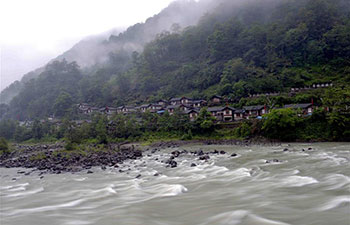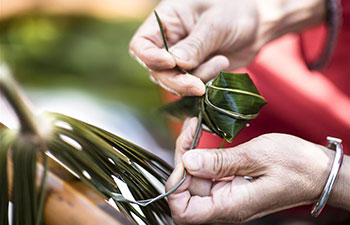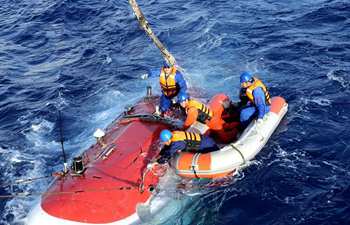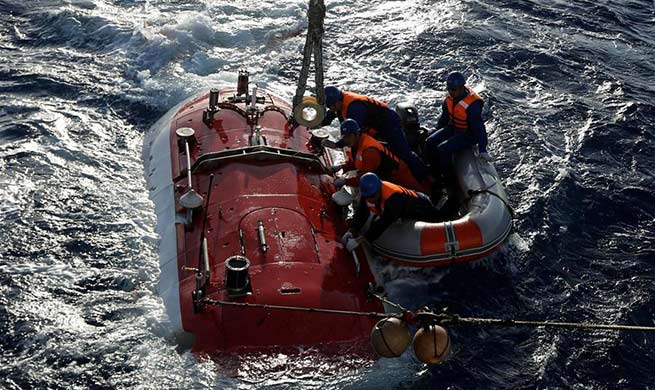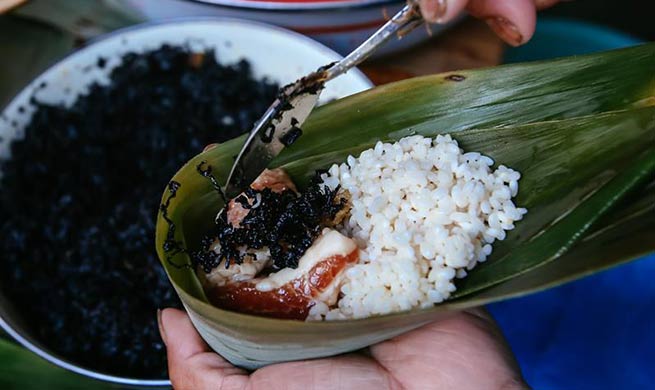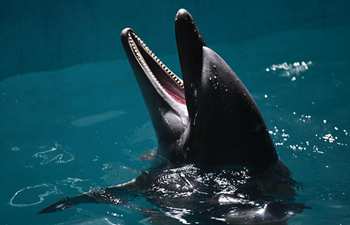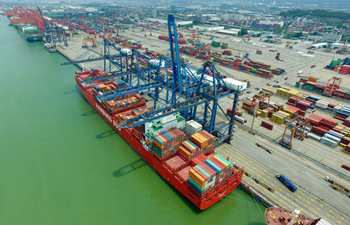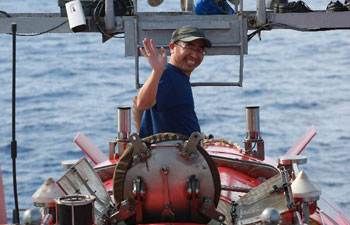SYDNEY, May 26 (Xinhua) -- With Australia's iconic Great Barrier Reef under threat from climate change, an extensive amount of work is being done in scientific laboratories to find ways to enhance and modify coral species for survival.
But according to new Aussie research on Friday, nature may already hold the answers.
An expedition to the South Pacific Island nation of New Caledonia has uncovered a location where "super corals" have adapted to their hostile environment.
"Typically corals live under finite conditions," joint lead author of the study, Emma Camp told Xinhua Friday.
"They need certain temperatures, certain pH levels, a certain amount of oxygen and when that becomes unbalanced the corals will die off."
Despite this, Camp's team from the University of Technology Sydney and the Institute for Research and Development Noumea, found seven new coral species living in warm, acidic and really low oxygen waters in a semi enclosed lagoon system.
The discovery may have significant implications for the future coral species in the Great Barrier Reef because researchers like Camp, believe conditions in the next 50 to 60 years will be comparable to the New Caledonian waterway due to climate change.
"It's very encouraging that they are there," Camp said.
"And we are trying to learn how they have adapted to their environment."
Finding the remote island system, was no accident.
"During my PhD research I was looking for these sorts of environments, so I had a good idea of the sorts of habitat that we needed to find," Camp said.
To facilitate the research, the Australian Government awarded Camp an Endeavor Scholarship to identify such environments.
After scouring the planet viewing satellite images, partners from Institute for Research and Development in New Caledonia informed Camp of a location that may be suitable.
"We turned up and jumped in and we were blown away by the diversity of the corals we found," Camp said.
To conduct the research, the team had to employ a combination of methods.
"There is the initial exploration to identify species and do surveys," Camp said.
"Then we take samples for molecular analysis, to determine the genetic signature of the corals and how they have adapted."
"We also took small coral larvae back to the lab in the natural seawater and incubated them to examine how the physiology is different to the controlled coral from an adjacent reef that doesn't have these conditions."
Despite the overall positive news, Camp warns there are still potentially dire consequences to ignoring climate change and that "we all have to think about what the cost of living in this kind of environment is."






